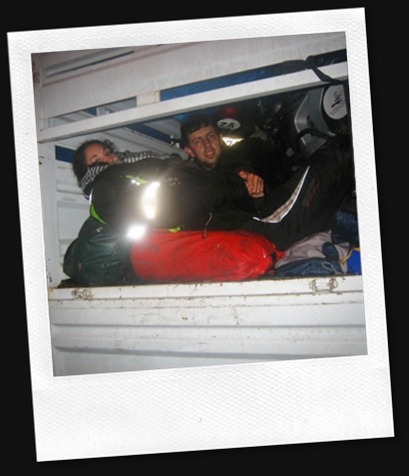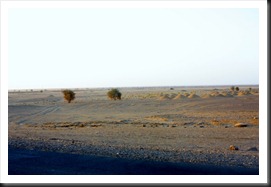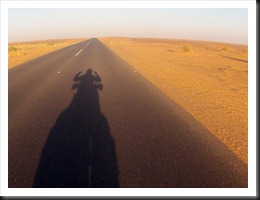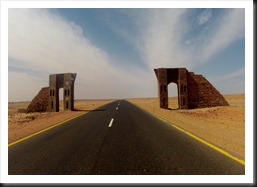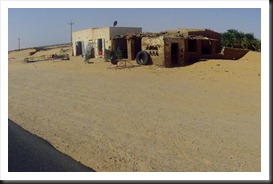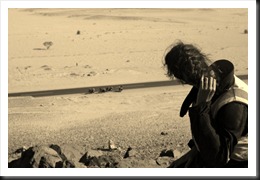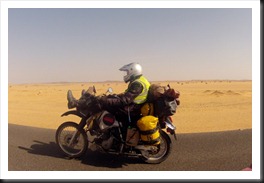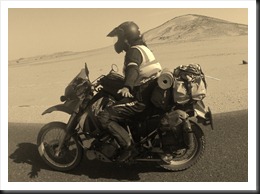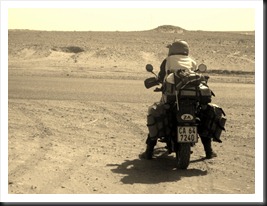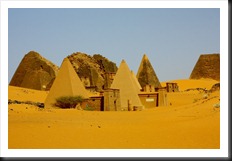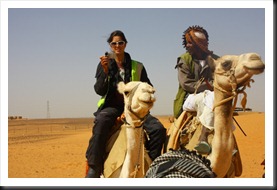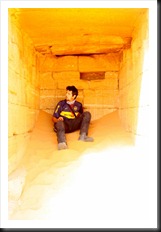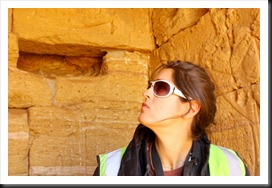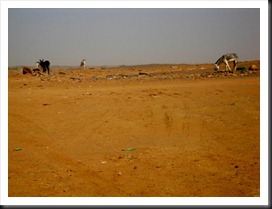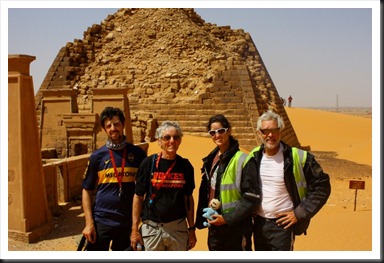Summaries from the Bikers
Cape Town
1.09.2012
Four months have passed since arriving back in Cape Town, (2 1/2 for John, who extended his stay in the far east for 7 weeks to do a public transport holiday with Carol.) It takes some time to re-integrate, but we seem to be back in the swing of things once again. We have given a few “report back” evenings, and will post on Facebook when other public evenings are planned.
We have included a story from each one to “sign off” the blog. Thanks again to everyone for their support and encouragement. We are happy to announce that the Red Cross Children’s Hospital Trust has m et their target for the new infectious diseases unit, and in fact, is starting a year earlier than they expected, due to some very generous donations.
et their target for the new infectious diseases unit, and in fact, is starting a year earlier than they expected, due to some very generous donations.

Mission Accomplished
JOHN writes:
Biker available for lsd trip
Long, Slow, Distance (lsd) biker looking for travel opportunities, BEE listed, rate negotiable in any currency.
Experienced on Cape Town to Singapore roads with a low rate of getting lost.
Has good skills in bike maintenance, 4hr plus border crossings, making large ATM withdrawals, sleeping anywhere and on any surface, operating GPS and camera at same time whilst riding.
Highly adaptable to rapid changes in travel plans, currencies, smell of fellow riders, road direction and diet.
Low to no dietary needs, eats on the go, with high tolerance of dirt, dust, engine oil and grease in diet.
Fluent in dealing with money changers, border crossing extortionists, facilitating bribes and quick fix repairs.
Experienced in dodging potholes, kids, fast women, cattle, disappointments, donkeys, goats, elephants, sheep, buses, chickens, stones being thrown, border officials and traffic police. All these at any speed up to 120 km/hr whilst enjoying the scenery.
Understands English broken into all shapes ; can attempt ‘thankyou’ in most African and Asian languages.
Good all round people, temperature and tea drinking tolerance.
Has key requisite: enjoys dreaming and adventure on 2 wheels.
Apply to John on the mean green machine.
SHAN writes:
Bike trip summary – 2nd half
The second half of our trip began just as frantically as it ended. In fact, “frantic” seemed to be the presiding feature of much of the middle portion of that section too… We made it across country borders on more than one occasion with literally minutes to spare before a visa would expire or an office would close. In truth, on six occasions, for varying reasons, one or more of us were brought to the border or within kilometres of the border on some form of transportation other that of our motorcycle itself due to breakdowns, time-constraints, or impassable stretches of land.
For all the stress that marked this second chapter in our journey, I found it to be the more richly rewarding of the two in that due to all of the breakdowns and setbacks that occurred, we were afforded more time in the various towns to actually meet and spend time with locals in their homes and experience the altogether unfamiliar but phenomenal generosity that their cultures had to offer while we waited out for each bike situation to be resolved.
To recall even simply that cups of tea that I have shared with locals I must include petrol attendants in Turkey, immigration officials in Iran, Pakistan, India and Nepal, police in Pakistan, midnight bakermen, a mechanic, and a local on a ferry ride in Turkey, in fact, many locals in Turkey (Turks are very generous, and love tea), Pakistani’s in their homes, internet cafés, hotel lobbies, tailor shops, mechanic shops, railway stations, military bases and on trains, outside the shack of desperately poor but beautiful family on the banks of the Ganges in India, with supper in a Nepali home and with Nepali locals outside an airport hanger, and in a rural Thai home close to the site of another breakdown… and these honestly just provide but a few examples. I haven’t even mentioned the coffees.
It is no secret that I love people, and little ones with an even greater affinity, and so as frustrating as things could get at the best of times (and I don’t deny that they affected me too), I relished these occasions which afforded me the chance to be humbled and blown away by the simultaneous simplicity and generosity of such an incredible culture of people. I was privileged to be invited into a number of homes, which was a fascinating opportunity to witness firsthand how differently life can be lived while at the same time bearing such striking similarities to the way I myself have been brought up. I recall a time in Pakistan when a gentleman brought me back to his home so that I could spend time with his wife, children and nieces (wives are generally confined to within the walls of their home, although this is not always the case). We sat together and drank tea (naturally) while the daughters, who are in fact trained as doctors, piled on questions of their own as well as those from their aunt, and mother for whom they would translate. All the while, the father who had brought me, sat smiling at us, pride for the women in his life so clearly evident on his beaming face. I noticed while we sat in a circle on cushions on the floor of the large lounge (couches and other furniture are a non-feature) that whilst the house was not specifically small, and the owner not poor, that for the 11 plus members living in the house there were just two or three bedrooms to be seen. As it turns out, gran has her own room, mom and dad share a room, and scattered around the edges of the lounge are a number of mats on which any of the children can lay claim to at the end of the day. The one remaining room had a double bed and one or two mats on the floor as well. This too was available to anyone but no-one in particular at the end of a day. Family is a unit, life is lived together, sharing is intrinsic and selflessness is a given. I found myself envying this simple life.
I have so many stories which I could recount in as much detail as though they was part of yesterday’s events, such as the experience of sleeping on the side of a Pakistani highway with no mattress or sleeping bag and just a petrol container as my pillow due to unrest on the road ahead, or the pain of travelling in ten hour stretches at a time through the sub-zero temperatures of Iran, sharing a soda with a Nepali orphan who sat holding my hand for two hours while the others prepared for bed, the various times we all experienced sickness of one kind or another (particularly in the Pakistani/Indian territory…), the million-and-one near misses on the roads of India, where highway traffic consisted of trucks, bicycles, horse and water-buffalo-drawn rickshaws, motorcycles carrying families of five, buses, cars, tractors, and a man standing on the saddle of his motorcycle with arms outstretched. True story.
There were the times we sat on the sides of highways with broken shocks trying to figure out a plan to reach the next nearest town, the outcome of one in Turkey which consisted of Jules and I soaked from rain, crammed into the corner of a truck along with the four motorcycles and all of the luggage and covered by a plastic tarpaulin for a very cold five hour drive to our destination. We arrived soon after 1am, having discovered the very broken shock absorber a full 11 hours before in the town 250 km back alongside the Mediterranean coast.
I am so incredibly grateful of this mind-blowing opportunity that I was privileged to be a part of. Frequently, I sit and wish that I was still on my red KLR off exploring some new road or village or group of people, drinking tea and washing my clothes in the shower with me. I would even give up the painted nails and ghd straightened hair I get to enjoy while I’m back home. And that’s saying something. Of course I would be stocked with a spare shock absorber, just in case, and maybe one extra t-shirt.
MAL writes:
After four months on our exciting journey from Cape Town to Singapore by motorbike, there is just so much to reflect on, that to sum it up in a few paragraphs is very difficult. The lifestyle we adopted during that time seems so different to the “normal” life back home, but we are slowly getting the two to gel, and to reconnect the conscious with the subconscious, and it is great to be back home.
In hindsight, when we departed from the Red Cross Children’s Hospital on December 30th, we can see that despite all our research, we were still blissfully unaware of exactly what lay ahead of us. For the first four days, we were still in South Africa, with all its familiar infrastructure, and cell phone contact. Once across BeitBridge, that all changed, as we headed north through Zimbabwe, reaching the mighty, awe inspiring Victoria Falls. We sampled the Zambezi rapids, and later in the evening, enjoyed a relaxing cruise on the Zambezi. It really seemed that there was now no turning back.
What had previously just been names on a map, became places that we got to know first hand, as we travelled through Lusaka, in Zambia, though to the shores of Lake Malawi. Our first of many challenges came when two of us went over the same pothole entering Lusaka as dusk was making strange shadows on the road, resulting in reshaping both of our front and back wheels. The next challenge was finding out that we were unlikely to find any petrol in Malawi. We had to devise ways of strapping 15 litres of petrol onto each bike, which, along with our 23 litre tank, and driving at a modest 80 k.p.h., saw us all the way through Malawi till we and our thirsty tanks reached Tanzania.
The dense vegetation that lined the roads in Zambia and Malawi began to open up with beautiful vistas and towering mountains. We managed to find ourselves right in the path of a tropical storm that was our companion for 8 days of continual rain. We stoically accepted what came our way and made the best of it. The lodges where we spent our nights had our wet socks, shirts, underwear, gloves and boots hanging from any available spot that we thought might allow some moving air to help dry things out a bit. Tanzania was the only country where we passed through a national park with its wild game on display.
We felt that a detour to Dar E Salaam would be well worth it, as well as a ferry trip to the island of Zanzibar. The whole trip from Cape Town to Singapore ended up being somewhat of a race against time, and so we only managed to have one day on the island, but we managed to hire a couple of tired old Vespa scooters to catch a quick view of the east side of the island, as well as seeing the old Stone Town. We saw the place where slaves suffered terribly before they were shipped to far flung shores, wrenched away from their homes. This was very sobering indeed.
Leaving the chaotic cities was always a wonderful respite, and travelling again through the countryside on fantastic roads was a pleasant contrast. Just being on the bike was always the most pleasant part of the whole trip. Having two way helmet-mounted radio communication devices helped us while away the hours, and Jules and I often spent long times chatting about the wonders of what we were seeing, and many other theoretical concepts! We past the incredible Mount Kilimanjaro, often shyly covered with cloud, but thankfully on this occasion, not from our eyes. Travelling further north through Kenya, we had the joy of crossing the equator, with the locals trying to show us how water swirls differently on one side of the line to the other side. We weren’t really convinced. It was surprisingly cool as we crossed the equator, being at over 2,200 meters above sea level. It was the first time that we reached for our warm clothing. We passed Mount Kenya (also snow capped) and as we dropped down into the Rift Valley, the warm clothing was back in the luggage, and that was about the last of the cool conditions we experienced through the rest of Africa. Northern Kenya presented us with the worst roads we have seen in our lives. One of the three of us managed to not have one fall on this stretch, but he made up for it with his share of punctures, which we soon became experts at fixing, which in 38 degree temperatures is not much fun. I’ll let you guess who this was, but he is young and good looking!
Sudan, while it was very dry and hot, was fascinating for its camels, pyramids, and dust storms, and amazing deserts that we drove through, with the life-giving Nile River on our side much of the way. On one long day’s drive through the desert, we hardly saw another car for about four hours, and the early morning shadows that the bikes and riders made on the road had us transfixed, at times concentrating more on the shadows than we should have, and less time on the road ahead. It was a fun day, as we did all sorts of stunts on the bikes as we rode along, and took some terrific photos. Perhaps what impressed us most was the genuine friendliness of the Sudanese people, who often offered to have us stay with them, or buy meals for us, with absolutely no ulterior motive.
Leaving Sudan by ferry, we waived goodbye to our bikes as we left them on the side of the Nile, waiting for the barge to take them the next day to their owners in Aswan, Egypt. As it turned out, the barge was delayed for almost a week, thanks to some wealthy 4×4 owners who bribed their way to holding back the barge so that they could reach the departure point at Wadi Halfa. Unaware of these events, we were patiently waiting each day for news of the barge. Oh well, all was forgotten once the bikes actually arrived, and we could get the documentation processed, and be on our way once again.
Heading north and east through Egypt to Cairo, we took the Red Sea route. The Red Sea is anything but red. It is in fact the most stunning blue I have ever seen. We battled strong, cold winds for two days, and passed hundreds of unfinished coastal resorts that had had to be left as shells, because of the world economic downturn, but also the political unrest that had shaken Egypt, and much of the Arab world. As we headed north through Africa, in the northern hemisphere, we realized that it was still winter in those parts, and could be quite cool at night. Reaching Cairo was a great feeling of satisfaction, firstly as an accomplishment, secondly, because my wife, Sue, and John’s wife Carol met us there, adding to the celebration, and thirdly because we managed to master the art of driving in the Cairo traffic, which is a bit like an orchestrated dance on a Grand Prix circuit. Just surviving was exhilarating. Sue even conquered a long-held fear of riding on a motorbike, and hopped on Jules’ bike one evening.
With all the turmoil in Syria, the obvious, but painful decision was made that we could not risk going through that country, in order to work our way east through Iran. We had to find an alternative route. Anything can be done for a cost, and cost us it did! We eventually had to crate our bikes and airfreight them over to Istanbul, Turkey. It was a pleasant enough interlude, as Istanbul is a fascinating city to visit, but we got our first taste of driving in really cold weather. Reaching one hotel, I had to ask the manager to undo my helmet strap, as I could not make my fingers respond to my brain’s command. Our series of shock absorber failures, for which we have become famous, caused serious delays and costs, to the point where we considered aborting the trip. 4bikes4Turkey just didn’t have the same ring to it as 4bikes4singapore had grown to have. With incredible support and encouragement from the home base, we just kept inching forward as best we could. Facing temperatures of -12 degrees C. was not a thought we relished but, we had to reach Iran before our visa expired.
The morning we crossed into Iran, we battled to coax our frozen bikes to life, and tried jump starting, and even resorted to the dangerous task of towing the one, which resulted in one of our number fracturing a rib. At last, they all rose to the challenge, and we made it across the border in the nick of time. Having at least arrived with a valid visa, they were willing to let us continue on borrowed time for a full week. Iran was a fascinating country in which to travel. We get such a wrong idea of the people of Iran. I can’t describe them in a paragraph, so won’t even begin, but the country is very modern in many ways. We passed Mount Ararat in all its snow-capped glory at over 5,000 meters. We rode a long way, along six lane highways, with tall snowy mountains on either side of us. Following the Silk Route, we dined in places that once had been frequented by camel trains. Heading further south-east, we passed acres and acres of date palms, and other fruit orchards, finally giving way to desolate desert and sun-baked mountains.
Crossing the border into Pakistan was a stark contrast to what we had just been through. The cold weather clothing was packed away, except for the cool evenings, and the parts we drove through showed a country where the money from the central government is not filtering through to the people and the infrastructure needed a boost. This seems to be creating a general mood of dissatisfaction. However, the hospitality was probably the best we had encountered on the whole trip. Because of further bike problems, much of Pakistan was completed either on a truck with police escort, or on a train. We stayed with amazing people from the Salvation Army in Lahore, who allowed us to physically, emotionally and spiritually recharge our batteries. What a treat is was being with them. With the bikes having also had their shocks “recharged”, we limped forward into India, wondering what challenge we would next have to face.
India seems to be one of those countries or cultures that you either love, or hate. It will always be an eye opener. We felt that the drivers there are homicidal, suicidal, and definitely maniacal, and if you don’t quickly learn to drive like they do, you will become a victim, but not a statistic, because no one is keeping score. Having said that, we surprisingly didn’t see the number of serious accidents that one would have thought would be a given. Don’t take that to mean there are not a lot of cars with dings in the side of them. We avoided the big cities, but got to see the mighty Ganges River flowing through the city of Rishikesh. We get so used to our way of doing things, but for the vast population in India, they just make life work. It works differently to our way, but it just works!!
Having made it to within striking distance of the western border with Nepal, we entered that beautiful peaceful country. It came as such a lovely contrast to India, though its people have a lot of similarities to the Indian people. Every river that we crossed, made us aware that it had originated in the majestic Himalayas about 120 km. to the north. The valley along which we drove was rich in agricultural land, and the people were labouring conscientiously in the fields. The country looked, felt, and even smelled peaceful. The driving was a real delight, especially the closer we got to Kathmandu, as we rode along the river, slowly gaining altitude all the way. Kathmandu also conjures up images of countless treks to the Himalayas, as man pits himself against nature, often coming out second best, but for those strong, determined, and may I say, lucky enough to summit Everest, and other senior peaks, they must really be able to bask in the glory that is the Himalayas, the top of the world. John and I could not resist a one hour flight over the mountains, doing Everest the easy way. The stewardesses allowed us to enter the cockpit, one by one, and get the front-on view looking through the cockpit window, rather than the tiny porthole windows. We would love to have hovered over the mountains for hours just soaking it in. The short stay in Kathmandu was just long enough for us to arrange for the next leg of the journey, which was air freighting our bikes to Thailand. (Myanmar, formerly Burma does not see fit at this stage to allow our sort of expeditions to travel through their country). With the amazing assistance of Suraj at Eagle Exports, we packed the bikes into crates, and later in the day, followed them on a different plane to Bangkok.
The Far East leg of the trip was shortened because of the previous delays due to mechanical problems, but what we did see was a great treat. The Far East has been well travelled by many people, and it was great to be privileged to join that number. We were very thankful to have a GPS to find our way around Bangkok, and managed to explore as much as we could in the short time we had at our disposal. Joined by Julian’s friend, Kathryn, we then moved slightly north to the city of Kanchanaburi, which is famous, amongst other things, for the bridge that was built over the River Kwai in World War 2 by allied POW’s and civilian prisoners, many of whom perished from disease, poor hygienic conditions and the cruel treatment by their captors. It seems that the movie took liberties when trying to portray the events of that time, and the museum at the bridge is a very sobering one indeed.
Moving down the Thailand peninsula was such a treat, as we basked in the warmth of the sun and took in the lush tropical vegetation. No wonder it is a tourist paradise. We sampled a beach resort on the east side, and then one on the west side, and still couldn’t make up our minds which we preferred. We will have to visit again to decide!
It was starting to feel surreal as we entered Malaysia, the final country before our destination of Singapore. It continued in the vein of Thailand, again with its beauty and tropical vegetation. We did a side trip to the Cameron Highlands, renowned for its tea plantations and strawberry farms. It was a motorcyclist’s heaven, as we twisted in and out of the curves in the road, always keeping that fine balance of throttle and brake, the lean left and the lean right, pass a car here and pass a car there. We were glad that we didn’t have the bald tires that we had finished the Cairo leg on. An unexpected bonus was to discover that at our destination for one of the nights, there was a classic motorcycle show on the go, for whole weekend, and again, we met many like-minded (read that as “crazy”) individuals who also get such a thrill being a biker.
And so, after more than two years of planning, and 123 days on the road, not always easy, but always a challenge and always satisfying at a level deep down in the soul, we reached the end of our journey, on the bridge that joins Malaysia to Singapore, with the electronic sign blazing above our heads saying, “Welcome to Singapore”. It was a very emotional time, with hearty congratulations for each one, and expressing the gratitude that each one felt for the contribution the others had made to the group. What happened next was a gut wrenching blow, when, upon reaching the customs, we were told that the documentation for the bikes was incomplete. It had sufficed for the previous 17 countries, but the well run and well oiled Singapore bureaucracy had other requirements. We were not allowed into Singapore. If we had long tails, they would have been tucked between our legs for sure, but here was yet one more problem that needed a solution-how do we ship our bikes back home without entering Singapore? It took us three more days, and right to the eleventh hour for that solution to present itself. It came indirectly via a contact of a contact, who himself is a biker, and a shipping agent, and who has shipped many containers of bikes around the world. We would ship from Malaysia the next day. Once the bikes were delivered to their pick up point, we kissed them goodbye, trusting we would indeed see them again, and hopped in the taxi to take us back into Singapore, this time simply as tourists, and not with our steeds, who were not welcome. We dropped John off at his hotel where he was going to wait for Carol to arrive the next day so they could do some travelling around the Far East, this time via public transportation. We then headed off to the airport, where we waited for the long flight home.
What a great treat to see the welcoming committee with a “Welcome Home” banner. The last time we had seen most of them was as we said farewell from the Red Cross War Memorial Children’s Hospital in Rondebosch, Cape Town. There is no place like home.
oooooooooooooooooo
We are asked many different questions by different people, such as:
“What was the highlight?” Too many to enumerate.
“Were you ever in danger?” Yes, but we never knew about it.
“Were you ever scared? Yes, on the Hell road to Moyale in northern Kenya. Many riders have fallen off their bikes and suffered injuries severe enough to have to abort their trip.
“Would you do it again?” In a flash.
“Have you planned your next trip?” I’m working on it, but something on the cards for 2015.
“What was it like doing it with your children?” It was the most awesome experience. I was in awe of Shannon, whose riding ability was incredible, especially along the stretch where I needed a pair of brown pants!! She is amazing at fixing things, and took exception when I tried to do something on her bike that she could do herself. Redundancy hurts! Her engaging with all the locals that we met was very special, and she always had a smile for everyone, and tried to find out all she could about their lives. She never seemed to get flustered, and accepted all the challenges that came our way in a very positive manner. Jules was equally a star on the bike, and with his natural curiosity with the world, he constantly brought amazing things to my attention that I might otherwise have missed. We had some great conversations, as I mentioned earlier, on the two way radios. He was very insightful in many situations, and decisive, but always democratic, and came up with very good suggestions. He loved learning more about the mechanical aspects of the bike, and wants to keep learning all he can. Both Shan and Jules have fuelled their addiction of travel, rather than satisfied it, and are planning their next moves already. Both took on their role as blog reporters very seriously, Jules with the writing, and Shan as the photo editor and blog editor. It takes up a lot of time that I am sure they would often have loved to spend relaxing after a hard day’s ride. While commenting on the young’uns, I must say that it was great doing the trip with John. He loves detail and would ensure that we had as much as we needed. He was a real boffin on navigating with the GPS. Imagine where we would be if we had turned right at Cairo. We’d still be trying to find our way home!! There were times he would lead us through little alley ways, twisting left and right, and suddenly, we would find ourselves exactly where we were supposed to be. Sometimes quick decisions had to be made at very busy and critical intersections, and he always came through. I loved his curiosity with new places, and he was always exploring, even if it meant on his own because we were too tired to venture out. When decisions needed to be thought through, his input was always valuable, as was his mechanical knowledge. And, when my credit card let me down, his was faithful to the end!! I’m sure there will be more trips that we do, even if they are closer to home.
“What have you learned?” So much, it is again hard to put into words.
It was amazing having contact with so many different cultures. Each one makes life work in its own way, as we make ours work for us. It may be different to our way, but it not to be invalidated.
We saw many poor people who are still happy to be alive, and some poor people for whom life is hell.
We were the recipients of so much kindness and generosity, that it makes one want to be more like those people, and “keep passing it on”. Generosity definitely doesn’t depend on your wealth.
I learned from the Indian drivers to just chill when someone cuts in front of me, and dodge when someone is driving toward me.
I want to smell the roses more, and relax.
I learned to be more appreciative of home and for those at home who made this trip possible for me to indulge in. (thankyou to my lovely wife, Sue).
I experienced that every problem has a solution, and that life does not exist without problems. Its very essence is problems and problem solving, not the eradicating of problems. Problems often get solved at the very last moment, when one is close to giving up, but quitting should never exist in our vocabulary. It may require a shift in thinking-out of the box.
It reaffirmed that leadership is so important. A good leader can determine the fate of a whole country. There are very few good leaders. But, people have the power to bring about change, and good will triumph. I still feel that 95% of people in the world are good and it is this small percentage of no goods that spoil it for the rest.
We all seem to want to be in control of ourselves and our environment, and often other people. This is not good. Being out of control can be very scary, but should be tried much more often than we let it.
Life is good. No, it is very good.
Jules writes:
It’s been about 4 months since we finished the trip, and I can’t believe how quickly life settles back into its own rhythms. Within 36 hours of our plane touching down in Cape Town, I was standing in front of my first class, bleary-eyed, saying “Good morning, gentlemen, I’m Mr Taylor”
I have been very surprised how little adjustment was needed as I settled back into a sedentary existence. I can only suppose that getting straight back into a very demanding (but very rewarding) job gave me no time sit around and pine for the life of freedom.
I’ve managed to do a few big rides since I’ve been back, and it is amazing how quickly it all comes rushing back. When we went to fetch the bikes from the shipping yard, my helmet still had a bit of mud from Malaysian roads stuck to the visor, making the ride home feel as though it was the final leg of trip.
Since then, Wynberg Boys High has very kindly supported my starting a motorbike society at the school, and every month or two, me and the boys with licences saddle up and head out to some beautiful part of the peninsula, which is not hard to find. Before we head out, though, I run them through some basic motorbike maintenance, something I would have been utterly incapable of doing before the trip started. It is such a delight to be able to share my love of riding with these young guys. Maybe in a few years we will be reading about some of their amazing exploits as they ride to distant corners of the globe.
It is very difficult to pin down exactly how the trip has changed me. Ironically, I think the biggest growth has come about from all the difficulties that we faced, which has grown in me a mindset of perseverance, even in the face of overwhelming obstacles. While I have yet to face anything quite as difficult as what we had to endure driving through Asia with our dodgy shocks, I now approach any task with a feeling of confidence, knowing that if we could get through that, I can get though anything.
If I had hoped that going on a trip like this would get the travel bug out of my system, I was sorely mistaken. Once I have finished paying off the last bit that I still owe on the 4Bikes4Singapore trip, I will eagerly start putting together my next adventure, maybe a meander down through South America, perhaps…?
Day 93 Quetta/Quetta to Lahore
Pakistan
31.03.2012
Jules writes:
With all the bags having been packed the previous day, it didn’t take long to get the two bikes packed and ready. Shan emerged, then fainted slightly for some reason, so I left her to sleep, and went with the gents down to the station. There we managed to get the bikes loaded without too much fuss, and the guys were soon ensconced in their cabin, co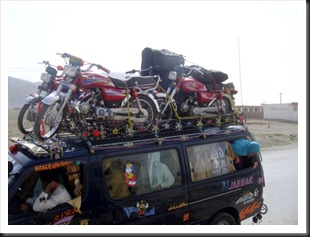 mplete with fold out beds and a fan, not quite the air conditioning that our tickets had promised, but not bad all the same. The journey should take about 28 hours, so the guys will arrive in Lahore in the early afternoon tomorrow. I left at around 9:30 to return to the hotel, and they soon met their travelling companion, a young air force pilot. By 10:00, the train started pulling off, and they settled into the journey, passing the time by chatting, watching the passing scenery , as the the afternoon slowly changed the landscape from brown dusty desert to fertile green farmland. Later that night, they were informed by their companion that his wife had just given birth to their first child, a girl. Generally, the journey was pretty uneventful, and the fan, although initially reluctant, was grudgingly coaxed to life with a bit of fiddling.
mplete with fold out beds and a fan, not quite the air conditioning that our tickets had promised, but not bad all the same. The journey should take about 28 hours, so the guys will arrive in Lahore in the early afternoon tomorrow. I left at around 9:30 to return to the hotel, and they soon met their travelling companion, a young air force pilot. By 10:00, the train started pulling off, and they settled into the journey, passing the time by chatting, watching the passing scenery , as the the afternoon slowly changed the landscape from brown dusty desert to fertile green farmland. Later that night, they were informed by their companion that his wife had just given birth to their first child, a girl. Generally, the journey was pretty uneventful, and the fan, although initially reluctant, was grudgingly coaxed to life with a bit of fiddling.
Meanwhile back in Quetta, Shan was still out for the count, and pretty much spent her day confined to the room. I decided to make one last visit down to Saleem’s house, where I spent the rest of the afternoon talking with him, his sons, and their friends. It really is amazing how many topics one can cover, as there always seemed to be new questions from both sides. After their generous hospitality, we are really hoping that some of them will be able to c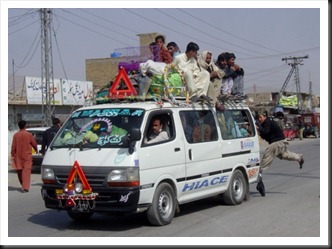 ome and visit South Africa at some point in the future, although it seems like it is very difficult for people from Pakistan to obtain visas to go pretty much anywhere in the world, as the country does not seem to have a particularly positive reputation internationally at the moment, much to the chagrin of the citizenry, who are absolutely gatvol of the current government. After a delicious meal of traditional Pakistani food, I made my round of goodbyes, and returned to the hotel accompanied by Asif, a friend of Saleem’s son Israr, to pack up and get an early night in preparation for the trip tomorrow.
ome and visit South Africa at some point in the future, although it seems like it is very difficult for people from Pakistan to obtain visas to go pretty much anywhere in the world, as the country does not seem to have a particularly positive reputation internationally at the moment, much to the chagrin of the citizenry, who are absolutely gatvol of the current government. After a delicious meal of traditional Pakistani food, I made my round of goodbyes, and returned to the hotel accompanied by Asif, a friend of Saleem’s son Israr, to pack up and get an early night in preparation for the trip tomorrow.
Back at the hotel, Shan was still entrenched in the bed, but Asif was very keen to chat a bit, and when I went downstairs to try and sort out the situation with the mechanic, he plied Shan with questions, asking her what sort of man she was looking to marry (hopeful it was a short Pakistani with a fluffy moustache…) and the like. Downstairs, meanwhile, I was part of a three-way conversation with Hussain, the manager of the hotel and Arsalan, his cousin who had done the work on the bike. John and Dad had left me with enough money to give him about half of what he was asking for, as we felt it was quite high, and, to be honest, a bit of a cheek considering that no payment had ever been mentioned over and above what he had originally asked for. A heated discussion followed for the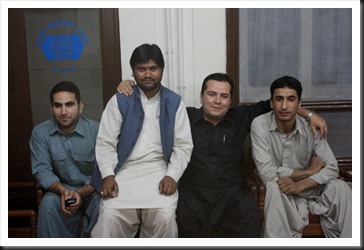 next fifteen minutes, but finally all was concluded, and I paid him the amount that I had set aside. Once that had been finalised, everyone was all smiles, and a thorough round of picture-taking ensued, soon including other hotel staff that hadn’t even been involved with the bikes in any way.
next fifteen minutes, but finally all was concluded, and I paid him the amount that I had set aside. Once that had been finalised, everyone was all smiles, and a thorough round of picture-taking ensued, soon including other hotel staff that hadn’t even been involved with the bikes in any way.
With that now done, it is now just a case of arriving at the station tomorrow, and hoping that we are indeed going to be able to catch the train with our bikes, this is definitely not the time for any surprises!
Day 77 – Mersin
Turkey
15.03.2012
Jules writes:
Given our rather unconventional arrival the night before, we felt quite entitled to a sleep-in the next morning. When we eventually tottered down to breakfast, Rupert and Fanny were downstairs, and we chatted to them about their travels. They had been stuck in Egypt for over five months, so long that they actually rented an apartment while they waited for everything to get sorted out. And we thought we had it bad! They had also been having shock absorber problems with one of their KTM’s , and so they offered to show us 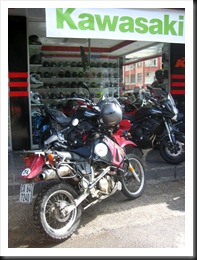 the way to the Kawasaki dealers from our hotel. We all managed to get our bikes going, except for Dad’s, which gave absolutely no sign of life whatsoever. Another problem to be dealt with, but not an immediate emergency, so we left him and John to do what they could, and we went down to the dealers. It all seemed like quite a slick operation, and after explaining to him the situation (really, all you need to do is bounce the bike up and down a few times, and it’s obvious what the problem is), he got one of his assistants to show us the way to his workshop, just around the corner. Once we were there, and repeated the bouncing trick, he got to work on removing it, but after a few minutes inspection, pronounced it “kaput” (his words). He said that he might be able to rebuild it, and considering that our only other option would be to order another part from Istanbul, which would ta
the way to the Kawasaki dealers from our hotel. We all managed to get our bikes going, except for Dad’s, which gave absolutely no sign of life whatsoever. Another problem to be dealt with, but not an immediate emergency, so we left him and John to do what they could, and we went down to the dealers. It all seemed like quite a slick operation, and after explaining to him the situation (really, all you need to do is bounce the bike up and down a few times, and it’s obvious what the problem is), he got one of his assistants to show us the way to his workshop, just around the corner. Once we were there, and repeated the bouncing trick, he got to work on removing it, but after a few minutes inspection, pronounced it “kaput” (his words). He said that he might be able to rebuild it, and considering that our only other option would be to order another part from Istanbul, which would ta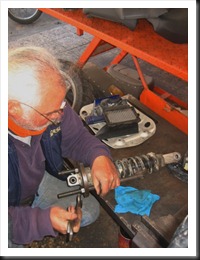 ke a couple of days, we decided to go for the repair option. By this time, Dad and John had joined us, and with nothing else to do, we relaxed in the sun, talking with Fanny and Rupert over a few cups of tea. They seemed very impressed with our KLR’s, which although definitely not in the same league as the KTM’s in terms of performance, were deemed pretty much perfect for this sort of trip. Our shock, although basic, could be fixed in a day, while they had been waiting for a replacement on their far more sophisticated shock for almost a week.
ke a couple of days, we decided to go for the repair option. By this time, Dad and John had joined us, and with nothing else to do, we relaxed in the sun, talking with Fanny and Rupert over a few cups of tea. They seemed very impressed with our KLR’s, which although definitely not in the same league as the KTM’s in terms of performance, were deemed pretty much perfect for this sort of trip. Our shock, although basic, could be fixed in a day, while they had been waiting for a replacement on their far more sophisticated shock for almost a week.
Back at the hotel, I continued with blog posts, and Shan took a walk around the neighbourhood. When she asked about ordering some lunch, she was directed to a computer shop next door, where she ordered some soup and bread, and magically, it was delivered to the hotel. Why we order from there, and not from a restaurant, is still a mystery. She also wandered into a sweet shop, where she was force fed all the free samples they could muster up, with some extra to take home. When you only have three t-shirts, your supply of clean clothes runs out pretty fast, and so we put everything in for washing, hoping that it would all be dry by the next morning.
We went back to the mechanics later to check the bike, and to our joy, it was fixed. When 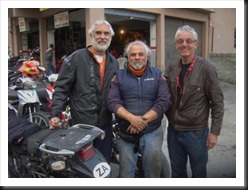 John’s bike was inspected, though, his shock also seemed a bit dodgy, but the mechanic declared that it was just a bit low on oil and filled it up, with no apparent leakage. We called the ever helpful Kor, who then contacted to trucking company who said that they would be at the hotel at 7 to pick up the bikes, and would drive them through the next two nights to get to the border town of Dogubeyazit. He agreed on a price, which was actually about the same amount that we would have spent in petrol getting the bikes there, but would save us a couple of days travel. This was really down to the wire, as the bus and truck were due to arrive in the town on the morning of the 17th, the last day that we can still get into Iran on our visas.
John’s bike was inspected, though, his shock also seemed a bit dodgy, but the mechanic declared that it was just a bit low on oil and filled it up, with no apparent leakage. We called the ever helpful Kor, who then contacted to trucking company who said that they would be at the hotel at 7 to pick up the bikes, and would drive them through the next two nights to get to the border town of Dogubeyazit. He agreed on a price, which was actually about the same amount that we would have spent in petrol getting the bikes there, but would save us a couple of days travel. This was really down to the wire, as the bus and truck were due to arrive in the town on the morning of the 17th, the last day that we can still get into Iran on our visas.
Supper was very basic, just the leftovers from our packed breakfast the day before. The bread was a bit too stale, so Shan picked up some simit, a type of local roll from next door, and after being shown a heart gesture towards her with his hands, was told she must come back at around 11 that evening, and they would give her some fresh sample straight out of the oven.
By 7, there was no sign of the truck, and we began to get a bit anxious. Finally, at 7:45, some guys arrived from the company, but there was no truck with them. It seems that they had decided that they wanted double the agreed upon price, as the truck would be empty apart from our stuff. Furious protests did nothing, and by now it was way too late to try and go with another company. Those wretched sharks had us over a barrel. We tried to reason with them, but to no avail, and we had no choice but to cough up the extra money, and load the bikes, hoping that we would see them again on the other side.
In an understandably foul mood, we traipsed back to the hotel, and stopped into the bakery on the way where Shan was having tea with the boys. The guys were in full swing there, and it was amazing to watch how quickly they produced a whole range of different types of bread. They even let me have a go at making a type of roll stuffed with olives, although I pity the person that actually bought it the next day, as it was obviously the runt of the litter. After loading up on mountains of free bread that they insisted that we take, we went back to our hotel to try and dry out our clothes, share a glass of local hooch with Rupert and Fanny, and then bedtime.
Day 76 – Antalya to Mersin (By bike: 261, by truck: 221)
Turkey
14.03.2012
Jules writes:
Four days until we need to be at the Iran border.
We have to cover a serious distance in the next three days, made all the more difficult with rain and temperatures in the single digits for the rest of our time in Turkey.
The current situation is this: our visas for Iran are valid until the 19th, meaning that we have to get to the border by the 18th. The 18th is also that day that the Iranian New Years celebrations begin, lasting a week, and during that time most people are on holiday, which would make it very difficult to obtain our carnet’s at the border (the AA in South Africa does not endorse Iran, so a separate carnet needs to be bought at the border). All this translates to us needing to get to the border on the morning of the 17th to be able to get to Iran and still be able to get to our first destination inside Iran, which has been booked months ago. This is why each delay has been so problematic, not just because of the money that we haemorrhage with each new set back, but the time that we waste sorting out the admin and vehicle repairs.
We packed bright and early (well, maybe not bright, but definitely early), with a light drizzle giving the cobbled streets a smooth polish. We had bundled up very warmly, and Shan was even wearing her pyjamas underneath the other layers. The road that we were taking hugged the coast, and as we drove next to the sea, the win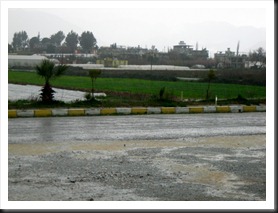 d howled its taunts to the waves, whipping them into a frenzy. The road surfaces for the first while was fantastic, but it soon began to climb up into the hills, taking us straight into blustery squalls that soon had us completely drenched, and we could feel the puddles forming in our boots. The temperatures hovered around 7 oC, although our layers did help to keep our core temperatures manageable. As we reached the mountain passes, the road surface began to deteriorate rapidly, and soon we were riding in mud and loose stones as much as tar, which forced us to keep our speed down. In these situations, though, stopping doesn’t accomplish much, and it is best to just keep going. At around 12:30, we pulled into a restaurant on the outskirts of town, and after a couple of false starts getting frozen legs off the bikes, we staggered inside. A gas heater was quickly commandeered, and we huddled around it until the shivering subsided, and Shan had melted the si
d howled its taunts to the waves, whipping them into a frenzy. The road surfaces for the first while was fantastic, but it soon began to climb up into the hills, taking us straight into blustery squalls that soon had us completely drenched, and we could feel the puddles forming in our boots. The temperatures hovered around 7 oC, although our layers did help to keep our core temperatures manageable. As we reached the mountain passes, the road surface began to deteriorate rapidly, and soon we were riding in mud and loose stones as much as tar, which forced us to keep our speed down. In these situations, though, stopping doesn’t accomplish much, and it is best to just keep going. At around 12:30, we pulled into a restaurant on the outskirts of town, and after a couple of false starts getting frozen legs off the bikes, we staggered inside. A gas heater was quickly commandeered, and we huddled around it until the shivering subsided, and Shan had melted the si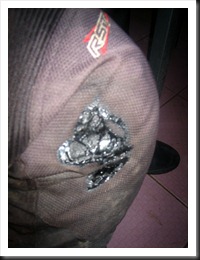 de of her pants leg. We ordered ourselves some food and tea, watching with unease as the wind and rain continued to pick up, until the sound of the rain on the roof was almost loud enough to drown out all conversation. I reckon we had got off the road just in time. It is a strange psychological phenomenon that it is much more bearable to encounter rain while riding than it is to start off the trip with heavy rains coming down. This kept us inside as we watched the hands of the clock slicing away our daylight hours, hoping that the rain would die down.
de of her pants leg. We ordered ourselves some food and tea, watching with unease as the wind and rain continued to pick up, until the sound of the rain on the roof was almost loud enough to drown out all conversation. I reckon we had got off the road just in time. It is a strange psychological phenomenon that it is much more bearable to encounter rain while riding than it is to start off the trip with heavy rains coming down. This kept us inside as we watched the hands of the clock slicing away our daylight hours, hoping that the rain would die down.
Finally, at around 2:30, the rain seemed to subside and we reluctantly put on our still soaking jackets and gloves, and jumped onto the bikes. Once everyone had started their engines, I sped off down the road. After a couple of minutes, though, I noticed that the others didn’t seem to be behind me. I waited by the side of the road, but after another five minutes and still no sign of them, I turned around and went looking. I found them at a fuel station just past the restaurant, and pulled over. Dad’s grim face told me all I needed to know (especially the mouth part of his face).
Shan’s shock absorber has gone.
[Pause for thirty seconds of disbelieving silence]
Yup, another one gone. We began making enquiries with the manager, and he sent off for a mechanic to help us. Over cups of tea, we began to weigh up 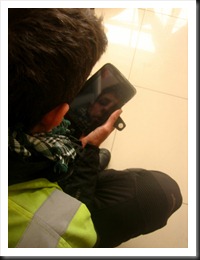 our options. If they could fix it here, then we would stay, and then head on when it was done, but that might put us too far behind to still make our Iran deadline, effectively ending our trip. Within half an hour the mechanic arrived, and pronounced that the parts we’re looking for were not available, and we’d have to either get them from Antalya, where we had just come from, or from Mersin, the next big town about 200 km away. So now the decision was whether to try and take the bike itself to Mersin, or to get someone to take the bus there with the part, get it fixed and then return. As usual, Kor came to our rescue, and when we phoned and explained the situation to him, he began making calls, trying to get quotes for trucks to take us to Mersin, checking to see the availability of parts. In the background, though, another, larger problem loomed. We didn’t have a day to spare, and this may very well be the end of this trip for us. We tried to push that from our minds, but the thought, once there, was insistent. We began to make plans to put the bikes on a truck once again, which would hopefully take the bikes right to Dogubeyazit, a town right on the Iranian border, and we would then follow them on a bus.
our options. If they could fix it here, then we would stay, and then head on when it was done, but that might put us too far behind to still make our Iran deadline, effectively ending our trip. Within half an hour the mechanic arrived, and pronounced that the parts we’re looking for were not available, and we’d have to either get them from Antalya, where we had just come from, or from Mersin, the next big town about 200 km away. So now the decision was whether to try and take the bike itself to Mersin, or to get someone to take the bus there with the part, get it fixed and then return. As usual, Kor came to our rescue, and when we phoned and explained the situation to him, he began making calls, trying to get quotes for trucks to take us to Mersin, checking to see the availability of parts. In the background, though, another, larger problem loomed. We didn’t have a day to spare, and this may very well be the end of this trip for us. We tried to push that from our minds, but the thought, once there, was insistent. We began to make plans to put the bikes on a truck once again, which would hopefully take the bikes right to Dogubeyazit, a town right on the Iranian border, and we would then follow them on a bus.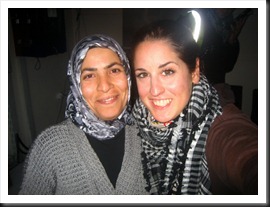
But all of this was contingent on us getting the bike fixed. We could only spare a day to get the shock repaired, and then after that, it would be too late. Soon, we had managed to get a quote that was reasonable, although still a hefty sum, as well as the number of a mechanic and shipping agent in Mersin, all thanks to the tireless efforts of Kor in Antalya. The truck arrived, amid some confusion, as it seems that the manager at the petrol station, who had kept us liberally supplied with 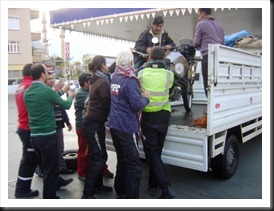 tea, had also organized for a truck to come. The inevitable price war meant that we ended up with a slightly better price than we had originally been given, although there was a catch: there was only enough space for two passengers in the cab, which meant that two of us would need to ride in the back of the truck with the bikes. Shan and I volunteered for the job, and the next hour was spent loading the bikes into a truck, which took a few attempts before some creative packing finally got them all wedged in. We had also been in contact with some fellow bikers, Rupert and Fanny, who were doing an almost identical route to us, and were waiting for a part (also a shock absorber) in Mersin. They gave us the address of the hotel, and then it was time to leave. The two of us climbed into a small spa
tea, had also organized for a truck to come. The inevitable price war meant that we ended up with a slightly better price than we had originally been given, although there was a catch: there was only enough space for two passengers in the cab, which meant that two of us would need to ride in the back of the truck with the bikes. Shan and I volunteered for the job, and the next hour was spent loading the bikes into a truck, which took a few attempts before some creative packing finally got them all wedged in. We had also been in contact with some fellow bikers, Rupert and Fanny, who were doing an almost identical route to us, and were waiting for a part (also a shock absorber) in Mersin. They gave us the address of the hotel, and then it was time to leave. The two of us climbed into a small spa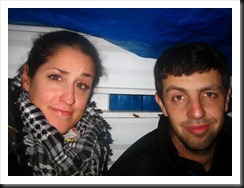 ce we had made between the bikes, and armed with only a couple of thin sleeping bags, hunkered down while the plastic sheeting was tied down above us. We settled into our turquoise tomb as best we could, and decided to search through some movies on the laptop to see what we could find. Unfortunately, the noise of the wind drowned out Anchorman, our first choice, and so we had to settle for a vintage copy of “Seven Samurai”, the only film we could find with English subtitles. That managed to see us through the first hour or so until the battery died. After that, there was nothing to do but try and get some sleep.
ce we had made between the bikes, and armed with only a couple of thin sleeping bags, hunkered down while the plastic sheeting was tied down above us. We settled into our turquoise tomb as best we could, and decided to search through some movies on the laptop to see what we could find. Unfortunately, the noise of the wind drowned out Anchorman, our first choice, and so we had to settle for a vintage copy of “Seven Samurai”, the only film we could find with English subtitles. That managed to see us through the first hour or so until the battery died. After that, there was nothing to do but try and get some sleep.
Four hours later, we were woken by some banging on the side of the truck. We had arrived. The plastic above us was efficiently removed, and we were staring blearily out at the hotel. After a quick photo shoot, we jumped out and began carting our bags into the hotel. Fanny and Rupert were there to greet us, and it was great to finally meet them after hearing so much about their travels. All that was left was to grab a quick shower, crank up the heater, and sleep.
Day 58 – Ras Gharib to Cairo (331 km)
Egypt
25.02.2012
Jules writes:
With a mere 250 km to go, we were eager to get going, and by 6:30, the bikes were packed. What we had not counted on was that the Universe is a capricious bitc… creature, and when I put my bike into gear from neutral, it  would lurch forward and stall, with the clutch still in, a clear sign that the clutch wasn’t disengaging. Bags off, tools out, but even with adjusting all the relevant cables, nothing changed. We tried running the bike in neutral to warm up the engine, and miraculously, that seemed to work, a mixed joy, as we still had no idea what had gone wrong in the first place. But not wanting to look a gift bike in the radiator, we took off, glad to be on our way.
would lurch forward and stall, with the clutch still in, a clear sign that the clutch wasn’t disengaging. Bags off, tools out, but even with adjusting all the relevant cables, nothing changed. We tried running the bike in neutral to warm up the engine, and miraculously, that seemed to work, a mixed joy, as we still had no idea what had gone wrong in the first place. But not wanting to look a gift bike in the radiator, we took off, glad to be on our way.
About 80 km from Ras Gharib was the 4th century monastery of St Paul, just a few  km off the main road. A curious fact about Egyptian highways is that traffic in opposite directions is separated by a distance that ranges between 100 m and 500 m , which means that any traffic circle is large enough for athletics teams to practice their long distance races by just running around a couple of times. In addition, if there is a turn on the opposite side of the road, there is never a linking road between the two directions of traffic, meaning that one frequently has to drive several kilometres past a road that one is wanting to turn into before finding a linking road between the two directions of traffic.
km off the main road. A curious fact about Egyptian highways is that traffic in opposite directions is separated by a distance that ranges between 100 m and 500 m , which means that any traffic circle is large enough for athletics teams to practice their long distance races by just running around a couple of times. In addition, if there is a turn on the opposite side of the road, there is never a linking road between the two directions of traffic, meaning that one frequently has to drive several kilometres past a road that one is wanting to turn into before finding a linking road between the two directions of traffic.
Upon arriving at the monastery, we were welcomed by one of the monks there, and while we were waiting, we started chatting to Martin, an Australian whose parents had left Egypt decades earlier. He was now working in the area, and was able to give us a lot of valuable information about the security situation in Syria, and none of the news was good. It seems like we seriously need to avoid Syria, which adds major complications for our trip, but that we would deal with once we were in Cairo.
After a delicious meal of foul, (a bean dish, not foul in the least), Brother (or father, not sure) Benoir gave us a tour of the monastery, including an old mil l that donkeys are hitched to, an underground cave where St Paul is claimed to have spent ninety years, his food brought to him every day by birds, and getting his water from a spring that still runs to this day, and the monks have been unable to trace its source. The monks themselves are generally very well educated, and their ranks include doctors, lawyers, dentists, etc. And they are constantly turning applicants away. It would be an amazing experience to come and spend a month here.
l that donkeys are hitched to, an underground cave where St Paul is claimed to have spent ninety years, his food brought to him every day by birds, and getting his water from a spring that still runs to this day, and the monks have been unable to trace its source. The monks themselves are generally very well educated, and their ranks include doctors, lawyers, dentists, etc. And they are constantly turning applicants away. It would be an amazing experience to come and spend a month here.
We were so close to Cairo now, and it seemed almost surreal to be seeing road signs promising that it was now 245, 237, 224 km to Cairo. With the signs showing a mere 100 km, we made the final turn Westwards to Cairo. We had organized to meet Mom and Carol at one of the toll plazas, and it was all now so close. The Cape to Cairo route is one of the most iconic overland trips in the world, and we have done it, each kilometre bringing us closer to our  halfway point, and the end of the African leg of our Journey. Our heads where in a whirl as we finally arrived at the plaza. We were a bit early, and so we waited on the side of the road for the taxi that would bring the ladies. And finally, there it was, hooting and waving from the other side of the road. In typical fashion, they were not allowed to turn at the toll plaza and h
halfway point, and the end of the African leg of our Journey. Our heads where in a whirl as we finally arrived at the plaza. We were a bit early, and so we waited on the side of the road for the taxi that would bring the ladies. And finally, there it was, hooting and waving from the other side of the road. In typical fashion, they were not allowed to turn at the toll plaza and h ad to drive another ten kilometres up the road before they could find a spot to turn around. And then the car was pulling up, and Mom and Carol piled out. Cultural sensitivity was thrown to the wind as we hugged and kissed. It’s been almost two months since we saw them last, and it was really unreal to think that we were all meeting up in Cairo. With the reunion complete, we followed the taxi back into some of the most insane traffic that I have ever seen in my life, and that includes driving in India. After driving through burst water mains, hooting taxis and scooters nipping through the traffic as though they they had a death-wish, we arrived at the hotel that the ladies had booked us into, a really nice place called the Oasis hotel. The next couple of hours was just a blur of stories about our trip, stories from home, presents that my mom and sister had organized from home, until it was supper time, when we headed down to the hotel restaurant. It was just so wonderful to be seeing people from home again, and family in particular. Over a delicious supper, the stories continued, and we just couldn’t get enough. Since we left South Africa, the trip seems to absorb every waking thought, and we were just soaking up the chance to get something of an outside perspective, to hear about what was going on in the lives of people back home. Eventually, the yawns could not be kept back, and it was time for bed.
ad to drive another ten kilometres up the road before they could find a spot to turn around. And then the car was pulling up, and Mom and Carol piled out. Cultural sensitivity was thrown to the wind as we hugged and kissed. It’s been almost two months since we saw them last, and it was really unreal to think that we were all meeting up in Cairo. With the reunion complete, we followed the taxi back into some of the most insane traffic that I have ever seen in my life, and that includes driving in India. After driving through burst water mains, hooting taxis and scooters nipping through the traffic as though they they had a death-wish, we arrived at the hotel that the ladies had booked us into, a really nice place called the Oasis hotel. The next couple of hours was just a blur of stories about our trip, stories from home, presents that my mom and sister had organized from home, until it was supper time, when we headed down to the hotel restaurant. It was just so wonderful to be seeing people from home again, and family in particular. Over a delicious supper, the stories continued, and we just couldn’t get enough. Since we left South Africa, the trip seems to absorb every waking thought, and we were just soaking up the chance to get something of an outside perspective, to hear about what was going on in the lives of people back home. Eventually, the yawns could not be kept back, and it was time for bed.
Day 49 – Aswan
Egypt
16.02.2012
Jules writes:
I awoke at around 1 AM with the wind gusting around us. And it was COLD. It seemed that maybe getting the upper deck to sleep on may have been a mixed blessing. The stars were out in full 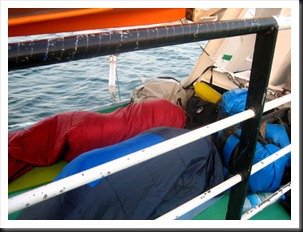 force, and this far from home, already starting to look unfamiliar. Motionless dark shapes around the deck seemed to indicate that everyone was asleep still, and so for the rest of the night, I drifted in and out of sleep, waiting for the dawn to bring some much appreciated warmth with it. As the sun started to warm the sky, people slowly unfolded themselves from their blankets and began to move around the deck. We all slowly emerged from our sleeping bags and began to pack up our bags, hoping that we would be arriving soon. We realised that we must have crossed the Tropic of Cancer at around 8 AM, and by 9:00, the small port town started to crowd the banks of the Nile.
force, and this far from home, already starting to look unfamiliar. Motionless dark shapes around the deck seemed to indicate that everyone was asleep still, and so for the rest of the night, I drifted in and out of sleep, waiting for the dawn to bring some much appreciated warmth with it. As the sun started to warm the sky, people slowly unfolded themselves from their blankets and began to move around the deck. We all slowly emerged from our sleeping bags and began to pack up our bags, hoping that we would be arriving soon. We realised that we must have crossed the Tropic of Cancer at around 8 AM, and by 9:00, the small port town started to crowd the banks of the Nile.
Once we had docked, we still had to wait on the ferry as documents were processed, although Shan and I managed to find a shortcut that got us right to the front of the queue. Then, that finished, people began to disembark, and we were met by Mr Kamal, the fixer on the Egyptian side. We moved, pushing and shoving through the throng towards the customs officials, passing through several security checkpoints. Soldiers were everywhere, trying to keep everything together. At one small door, an official was struggling to keep a man from pushing through, until a soldier marched up to the man to shout right in his face. I watched in in fascination as he breathed in through his nose so hard, it seemed as though he was preparing to spit in the man’s face with everything his oesophagus could muster. Just as he was about to let loose, the door opened and the crowd surged through, leaving the soldier with a foul taste in his mouth, in every sense. In the musty customs hall, it seemed that everywhere there were people getting really really angry, with shouting matches flaring up, only to die away just as quickly. As a spectator, it was wonderful to see, something out of a story book.
Once all of our luggage had been cleared, we began to load up Mr Kamal’s car. I now have a good idea of how those clown cars are pre-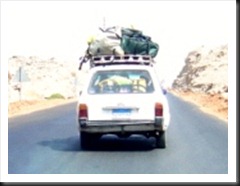 packed for the circus, as somehow we managed to put eight people’s bags into the boot and balanced precariously on the roof, and then stuff nine of us (the four South Africans, three frenchmen, Hayato and Mr Kamal) into various yoga positions in order to get the doors to close. After a kilometre or two, it seems that even Mr Kamal was a bit worried about losing
packed for the circus, as somehow we managed to put eight people’s bags into the boot and balanced precariously on the roof, and then stuff nine of us (the four South Africans, three frenchmen, Hayato and Mr Kamal) into various yoga positions in order to get the doors to close. After a kilometre or two, it seems that even Mr Kamal was a bit worried about losing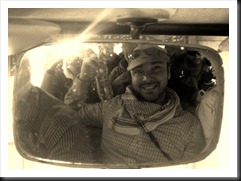 something (in fact, I think the weight itself may have caused the engine to simply lose all power), and so half of us offloaded into another car. As we rode towards Aswan, Shan and I launched into that most entertaining of travelling activities: trying to get some local information from someone who has a fairly tenuous grasp of English and shares a mutual struggle to understand each other’s accents.
something (in fact, I think the weight itself may have caused the engine to simply lose all power), and so half of us offloaded into another car. As we rode towards Aswan, Shan and I launched into that most entertaining of travelling activities: trying to get some local information from someone who has a fairly tenuous grasp of English and shares a mutual struggle to understand each other’s accents.
Shan: Is there any food that we must try in Egypt?
Kamal: Is good food.
Shan: But is there any food in particular?
Kamal: Orange
Jules: And cooked food?
Kamal: Orange and manga.
Shan: Are the mangoes nice?
Kamal: No, no manga
Jules: Is there any Egyptian food that is very good, like Shawarma?
Kamal: Orange is good.
Jules: Ok, great. Thanks.
As a general rule of thumb, if you can’t find out what you are looking for after three attempts, it is probably best to give a polite “thank you” and try again with someone else. While we were driving, he casually mentioned “Barge will arrive Tuesday, maybe Wednesday” This was a bit of a bombshell, as everything that we had heard indicated to us that the barge (on which our bikes will be coming) leaves on Thursday and usually arrives on the Friday. This would essentially delay us for an extra three or four days, particularly problematic as my Mom was flying in to Cairo to see us, arriving on Monday morning.
We arrived at the Hathor hotel, beguiled by the Siren-song of Wifi. John and Dad took a double room, and Shan, Hayato and I shared a triple room. Hayato was going to be in Aswan for a couple of days, and so we decided that it would be great if he joined us for his time here, as we would be wanting to see similar sights, and it saved on accommodation costs.
Once ensconced in our rooms, we unpacked, showered (something that we 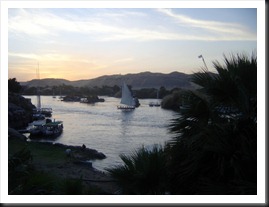 haven’t been able to do for at least the last week) and took some time to collect ourselves. It turns out that our hotel has a great location, directly opposite the Nile, and right by one of the entrances to the local Souq. Shan, Hayato and I took a quick walk through the narrow street, followed by impassioned pleas of local merchants wanting us to come and buy some spices/scarves/fruit/food/curios/hairbands(?) and the like. We settled for some dates and some koshery, a local dish made from pasta, rice and lentils, fairly plain, but tasty all the same. Back at the hotel, we ate our food on the roof, with a magnificent view of the Nile, the Islands just across from us, the desert on the opposite side littered with monasteries, tombs and small villages.
haven’t been able to do for at least the last week) and took some time to collect ourselves. It turns out that our hotel has a great location, directly opposite the Nile, and right by one of the entrances to the local Souq. Shan, Hayato and I took a quick walk through the narrow street, followed by impassioned pleas of local merchants wanting us to come and buy some spices/scarves/fruit/food/curios/hairbands(?) and the like. We settled for some dates and some koshery, a local dish made from pasta, rice and lentils, fairly plain, but tasty all the same. Back at the hotel, we ate our food on the roof, with a magnificent view of the Nile, the Islands just across from us, the desert on the opposite side littered with monasteries, tombs and small villages. 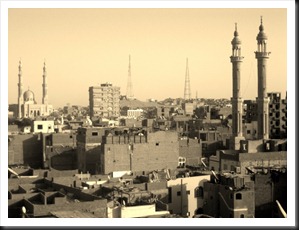
That evening, I took a walk around the souq by myself, and tried my hand at bargaining. One merchant decided that my life would simply not be worth living if I did not immediately purchase from him a woollen scarf. Although I made it clear that I had no money with me, he insisted that I name a price. He started at 250 pounds, I responded how preposterous that was, that I was a humble traveller, and so the back-and-forth proceeded, until we eventually arrived at a figure of 100 pounds. As I had no money on me, the point was moot, but he seemed satisfied that if I returned, he would have a guaranteed sale on his hands, and so I continued on my way. From 250 to 100 is not bad going, methinks. This sort of thing continued as I walked down the street, until eventually I had had my fill of haggling, and wandered back to the hotel. John and Dad had also had a nice evening out investigating the local market and retired to their room. Frustratingly, but perhaps not unsurprisingly, the internet wasn’t working, and so I headed for out with Shan and Hayato to explore a bit further along the main road, eventually settling into a large coffee shop and ordered a round of Turkish coffee so thick that the sugar bounced off the surface as you poured it. We swapped stories about life in South Africa and Japan, and our travels. Finally, close to midnight, we made our way back to the hotel, passing groups of children still playing in the streets.
Day 43 – Khartoum
Sudan
10.02.2012
Jules writes:
Despite the insistent calls of the Imams throughout Khartoum, we managed to get a bit of a sleep-in, always a welcome treat, and at about 8:30, Jo arrived to pick us up for our big day out. 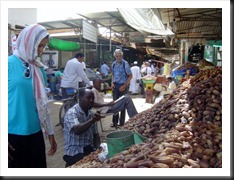
Our first stop was the Souk in Omdurman, a wondrously sprawling affair of narrow alleys, dark shops, people everywhere out shopping for shoes, or meat or spices. It would be very easy to become lost in these narrow streets, but Jo seemed to know her way, and we managed to find someone who was able to fix a belt of Dad’s that had broken, he even did it for free. We also soon found him a new pair of shoes. We then spent the next hou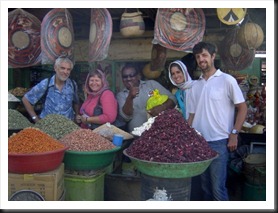 r just wandering around, taking in all the sights and smells. Spices, some that I had never seen before filled huge baskets, hibiscus tea, fruit and vegetables of every variety, meat practically dripping with flies, clothes, shoes, curtains, antiques. It was everything that one could hope for in an exotic, Arabian market. Even doves, considered a local delicacy were sold in paper bags. At the sweet shop, the owner allowed us to sample some of his wares, strange, but delicious concoctions containing honey and almonds and rose water, of the ingredients that I could identify.
r just wandering around, taking in all the sights and smells. Spices, some that I had never seen before filled huge baskets, hibiscus tea, fruit and vegetables of every variety, meat practically dripping with flies, clothes, shoes, curtains, antiques. It was everything that one could hope for in an exotic, Arabian market. Even doves, considered a local delicacy were sold in paper bags. At the sweet shop, the owner allowed us to sample some of his wares, strange, but delicious concoctions containing honey and almonds and rose water, of the ingredients that I could identify.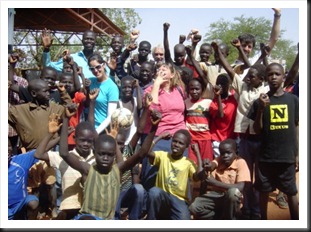
After purchasing a couple of coffee pots to take home, we drove to a boys shelter that Jo used to work at. The shelter is a place of safety for many of the boys who live on the streets of Khartoum, and for those that want to, a way for them to find their families. We were told of a story of one boy who wandered in, only three years old. Eventually, after staying at the shelter for quite a while, some of the workers heard about a family who had lost a boy almost a year before. After a bit of investigating, they managed to find out that it was in fact the same boy, and he is now back with his family. Some of the boys that have passed through the program have even gone on to graduate from University. So, some fantastic work being done. It was great to see them and spend some time with them.
It was now almost lunchtime, so we headed over to a popular loc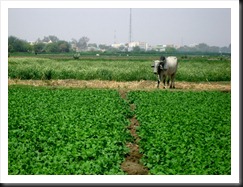 al fish restaurant, where we had a delicious meal, although eating only with the right hand was quite a challenge. Once we had finished the mountain of fish, we decided to take a ferry across to Tuti, an island in the middle of the Nile that is still the site of a lot of agriculture. We boarded the ferry, and were soon chugging across the waters. On the ot
al fish restaurant, where we had a delicious meal, although eating only with the right hand was quite a challenge. Once we had finished the mountain of fish, we decided to take a ferry across to Tuti, an island in the middle of the Nile that is still the site of a lot of agriculture. We boarded the ferry, and were soon chugging across the waters. On the ot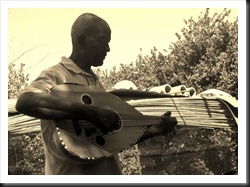 her side, we wandered through lush fields of rocket (lettuce is not such a big deal here), an oasis of vegetation surrounded by the desert around Khartoum. In front of us, we noticed a local couple holding hands, something that would be absolutely forbidden back on the mainland, but under the indulgent eyes of infidels like us, they seemed happy to let their guard down. As we paused by one field, a man invited us to come and share some tea with him, and we realised that it
her side, we wandered through lush fields of rocket (lettuce is not such a big deal here), an oasis of vegetation surrounded by the desert around Khartoum. In front of us, we noticed a local couple holding hands, something that would be absolutely forbidden back on the mainland, but under the indulgent eyes of infidels like us, they seemed happy to let their guard down. As we paused by one field, a man invited us to come and share some tea with him, and we realised that it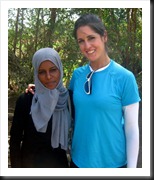 was our ferry driver. We accepted, and spent a wonderful hour enjoying tea, listening to him play some tunes on an aood, a local stringed instrument and admiring his sizable collection of exotic birds. On our way back to the ferry, the young couple who were walking with Shan seemed so enamoured of her that they kept stopping every 20 m or so to take photos with her under every passing tree.
was our ferry driver. We accepted, and spent a wonderful hour enjoying tea, listening to him play some tunes on an aood, a local stringed instrument and admiring his sizable collection of exotic birds. On our way back to the ferry, the young couple who were walking with Shan seemed so enamoured of her that they kept stopping every 20 m or so to take photos with her under every passing tree.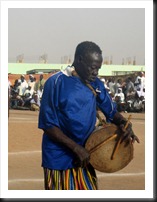
Once back on the Mainland, we headed off to try and locate the Nubian wrestling, a local sport brought in from the Nuba mountains in the East. Eventually, after quite a drive and a lot of stopping to ask for directions, we arrived at the arena, where we found our seats and started chatting to some local officials while a strange gnome-like man, looking like the henchman to some animated Disney villain banged a drum to warm up the crowd. Finally, the wrestlers 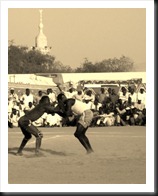 emerged, and after welcoming “our brothers and sisters from South Africa” (we had been chatting to the announcer), and the battle commenced. It was fascinating to watch, almost like watching Jiu Jitsu, with wrestlers taking it in turns to try and grapple his opponent onto his back. We stayed for about five fights, but our day was not yet done, and with the sun starting to set, we drove back to the place we were staying.
emerged, and after welcoming “our brothers and sisters from South Africa” (we had been chatting to the announcer), and the battle commenced. It was fascinating to watch, almost like watching Jiu Jitsu, with wrestlers taking it in turns to try and grapple his opponent onto his back. We stayed for about five fights, but our day was not yet done, and with the sun starting to set, we drove back to the place we were staying.
After putting on another load of washing (many of us were down to our last clean pair of unmentionables), we drove to a fancy local restaurant called Solitaire, where, in addition to the free wi-fi, we feasted on a variety of meals, accompanied by complimentary drinks and desserts, until at around 10:00, they rolled us out, and we returned back home, to put on one last load of washing and collapse into our beds.
Day 41 – Bahir Dar to Al Quidarif/Gederef (510 km)
Ethiopia to Sudan
08.02.2012
Jules writes:
Today was going to be a swine, so at 5:15, the alarm started beeping with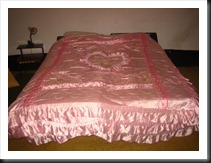 the kind of cold mechanical malice that only inanimate objects can employ. Fifteen minutes of snooze button later, we were up and packing, the air just cold enough for the hint of mist to form on ones breath. Just after 7:00, we were on our way to hunt for petrol. It is quite curious how few fuel stations actually sell petrol (called benzene here for some bizarre reason), considering how many small petrol bikes and tuc-tucs there are buzzing through the streets. Eventually, after three failed attempts, we finally found a place, and were ready to go.
the kind of cold mechanical malice that only inanimate objects can employ. Fifteen minutes of snooze button later, we were up and packing, the air just cold enough for the hint of mist to form on ones breath. Just after 7:00, we were on our way to hunt for petrol. It is quite curious how few fuel stations actually sell petrol (called benzene here for some bizarre reason), considering how many small petrol bikes and tuc-tucs there are buzzing through the streets. Eventually, after three failed attempts, we finally found a place, and were ready to go.
The reason that today was going to be such a beast was that we had 350 km to go to the border, then an unknown amount of time crossing, and then another 150 km into Sudan to find the first town of any notable size. As 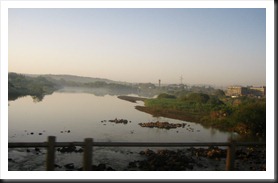 always, the countryside seemed to play like some kind of slide show, with fertile grassland merging into high green mountain peaks, then into desolate deserts, all in the space of about a hundred kilometres, with the temperature rising swiftly as we descended from the highlands. At some point in the morning, we crossed the 10,000 km mark, quite a milestone. I was very impressed by everyone, as, apart from a few photo stops, we pushed on throughout the morning without any breaks. This was not without reason. We had learned our lesson from crossing into Ethiopia, and were very keen to try and arrive before
always, the countryside seemed to play like some kind of slide show, with fertile grassland merging into high green mountain peaks, then into desolate deserts, all in the space of about a hundred kilometres, with the temperature rising swiftly as we descended from the highlands. At some point in the morning, we crossed the 10,000 km mark, quite a milestone. I was very impressed by everyone, as, apart from a few photo stops, we pushed on throughout the morning without any breaks. This was not without reason. We had learned our lesson from crossing into Ethiopia, and were very keen to try and arrive before 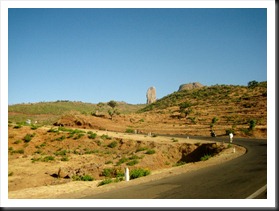 everyone disappeared for a two-hour lunch break. Unfortunately, due to a slightly later start than planned, and then the hunt for fuel, we arrived at the border post at around 12:15, and sure enough, lunch had started, three hours this time, as they didn’t want to take any chances in the heat. As always, where there’s a dollar, there’s a way, and it seems that $20 was enough for the official to postpone his lunch break by about 20 minutes. Now, a curious feature of border posts is the number of civilians who seem to be able to operate some of the mechanisms of bureaucracy, and we had one such, a most painful individual, who seemed somewhat uncertain as to what we were actually supposed to do next, and so tried to chivvy us from one station to the next, then seemed impatient when we actually went and did something, complaining that they were waiting to check our bags for customs after having told us to report to immigration.
everyone disappeared for a two-hour lunch break. Unfortunately, due to a slightly later start than planned, and then the hunt for fuel, we arrived at the border post at around 12:15, and sure enough, lunch had started, three hours this time, as they didn’t want to take any chances in the heat. As always, where there’s a dollar, there’s a way, and it seems that $20 was enough for the official to postpone his lunch break by about 20 minutes. Now, a curious feature of border posts is the number of civilians who seem to be able to operate some of the mechanisms of bureaucracy, and we had one such, a most painful individual, who seemed somewhat uncertain as to what we were actually supposed to do next, and so tried to chivvy us from one station to the next, then seemed impatient when we actually went and did something, complaining that they were waiting to check our bags for customs after having told us to report to immigration.
We happened to arrive at the border post at the same day that the cyclists from the Tour d’Afrique were crossing the other way. The Tour is a truly epic challenge, for those who feel that self-flagellation is too tame a form of masochism, in which a group of about 50 cyclists cycle the entire distance from Cairo to Cape Town, typically covering about 100 km each day, and then camping for the night. They had only covered two countries, and already the scrapes and bruises were in profusion. They actually arrive in Cape Town a couple of weeks after we (hopefully) arrive back, so we will definitely go and see them in, maybe even ride the bikes in with the group.
Once we had completed everything on the Ethiopian side, we crossed over into Sudan, leaving our odious assistant behind. Upon arrival at the Sudanese immigration desk, we soon experienced a sinking realisation that the Sudanese border post at Meteme is a study in inefficiency. For starters, one has to queue for a form, and once that has been given, one has to sit down and fill in said form (the second question, after “Name:” is “Mothers Name:”. Quite odd. Once that form has been filled in, one re-joins the same queue, and is then processed. Once that is done, we headed over to the customs building, a good couple of hundred metres further down the road, where our documents were processed by a man who was clearly being paid by the hour, not by the number of vehicles that he processed. In fact, it took an hour and a half to complete our forms, and when we looked at them, we saw to our rising ire, that he had filled in about eight lines of writing for each of us. Even the most patient of foundation phase teachers would have screamed in frustration and gone for a lie-down. In the meantime, Shan had attempted to purchase some cold-drinks, a task which proved insurmountable. And it goes a little something like this:
Shan (walking into shop number one): Hi, I”d like to buy some drinks
Shop lout: Sit, sit
Shan: I don’t want to sit, I just want to buy some drinks
Shop lout: No, sit. Have some food with us
Shan: No, I really don’t want to have food, I just want to buy something to drink
Shop lout: No, sit, sit.
Shan: #&*@ (and walks out)
Shan (walking into shop number 2): Hi, can I buy some cokes? (gesturing at the fridge in the middle of the shop filled with cokes)
Shop Drudge: No coke
Shan: But I can see it right there, in the fridge
Shop Drudge: No, no coke.
Shan:….
And so on. In fact, she never did manage to buy any drinks.
Finally, once the world’s most cautious scribe had finished our documents, we returned to the immigration desk. Sudan has a quite frankly moronic policy that any persons entering the country must register themselves as aliens with the police within three days of arriving in the country. Why this is not just a standard part of the immigration process, I do not know. One of the ladies travelling with the Tour d’Afrique informed us that they are able to process that at the border post, but only if you begged them. Yet despite our most heartfelt entreaties, they brusquely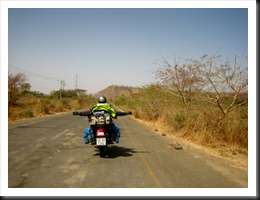 refused, and would not supply a reason. Eventually, fed up, we left to try and find some fuel, having now spent almost five hours at the border. As usual, the first place we stopped did not have any, but just further down the road, we managed to find a station that could fill our tanks. That done, we turned our bikes towards Sudan, the eighth country on our journey.
refused, and would not supply a reason. Eventually, fed up, we left to try and find some fuel, having now spent almost five hours at the border. As usual, the first place we stopped did not have any, but just further down the road, we managed to find a station that could fill our tanks. That done, we turned our bikes towards Sudan, the eighth country on our journey.
We set off around 5:00, but the temperature was still a sweltering 38o C, and the ground was parched and dry. Some immediate differences were the dramatically reduced population density. We saw hardly anyone walking along the road except near towns, and the roads were almost empty, although the more-than-occasional pot-hole helped to keep us awake. Every 10 km or so, a dead cow would adorn 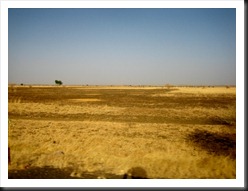 the road, so desiccated that even the most ravenous hyena would have had to approach the task of eating one with considerable determination (and possibly some tomato-sauce)! The sun seemed to hang suspended in the dusty haze, as if reluctant to miss even a moment of the site of these four strange travellers winding along the roads.
the road, so desiccated that even the most ravenous hyena would have had to approach the task of eating one with considerable determination (and possibly some tomato-sauce)! The sun seemed to hang suspended in the dusty haze, as if reluctant to miss even a moment of the site of these four strange travellers winding along the roads.
Eventually, we arrived at Al Quidarif, and were offered two options by the Lonely Planet guide: either small and tatty, or plush, but with a rude owner somewhat reminiscent of Basil Fawlty of Fawlty Towers fame. As is often the case with us, we ended up going into the first place we saw, which happened to be “small and tatty”, which proved to be quite pleasant, if a little Spartan. With the temperature still hovering in the 30’s long after the sun has set, the fan in the ceiling will no doubt be a welcome feature.
Day 33 – Yebelo to Awasa (296 km)
31.01.2012
Jules writes
After striking the tents and eating what must have been the oiliest omelettes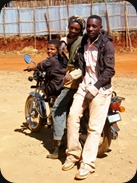 and French toast ever made (I think we could have run one of those hippie Volkswagen buses for a month on the amount of cooking oil we could have squeezed out of our breakfast), we packed the bikes and hit the road. There was no fuel in the town, but we did manage to find some about 100 km further along. I am quite impressed at how easy it has been to find petrol, we haven’t once had to buy black market fuel (usually dirty, expensive and watered down).
and French toast ever made (I think we could have run one of those hippie Volkswagen buses for a month on the amount of cooking oil we could have squeezed out of our breakfast), we packed the bikes and hit the road. There was no fuel in the town, but we did manage to find some about 100 km further along. I am quite impressed at how easy it has been to find petrol, we haven’t once had to buy black market fuel (usually dirty, expensive and watered down). 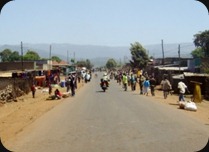
We were headed for a city called Awasa, the largest town in the South of Ethiopia. There were definitely more people along the roads, and the houses and small shops along the road seemed to never end. I am pretty sure that we travelled for more than 100 km at one point without ever being out of sight of a dwelling of some sort, almost as if we were driving through one long continuous town, 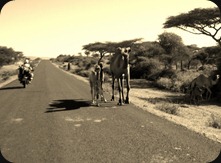 complete with herds of cows, donkeys, sheep and goats threatening to dash across the road at any second, which made for slow riding. Riding through one of the t
complete with herds of cows, donkeys, sheep and goats threatening to dash across the road at any second, which made for slow riding. Riding through one of the t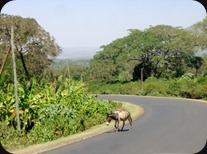 owns, I saw a driver with a passenger on the back clip the back leg of a donkey crossing the road, equally inattentive, which sent the bike down onto the tar, and a very miffed looking passenger. The donkey seemed fine, and just kept walking.
owns, I saw a driver with a passenger on the back clip the back leg of a donkey crossing the road, equally inattentive, which sent the bike down onto the tar, and a very miffed looking passenger. The donkey seemed fine, and just kept walking.
Steven woke that morning with a good feeling. As a ground squirrel, he didn’t want much from life. He and his mate had managed to raise three fine litters, all of which had gone on to establish burrows of their own. As he scurried between rocks, his only thought was on what he felt like eating for breakfast, maybe a crunchy beetle, or some berries that had managed to make it through the winter. As he sniffed underneath a fallen log, he heard a faint rumble in the distance. He had heard it before months ago, but this time it seemed different. Louder. More menacing. Uneasily, he decided that maybe he didn’t feel as hungry as he thought, and decided that maybe it might be best to get back to the burrow. But as he trotted along, it seemed to get louder and louder. He broke into a full sprint, dashing along the red earth, onto a strange black surface, the sound almost on top of him, filling his ears with a furious roar.
And then he was squished by a bike. My bad.
Dad also hit some kamikaze bird with his bike, so we are proving quite hazardous to small Ethiopian creatures.
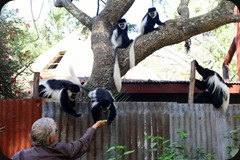 We arrived in Awasa at around 3:00, and after looking around for a place to stay, we found a fantastic spot right on the lake. It was great to arrive with some sunshine left, and as an extra treat, a troupe of Colobus monkeys had settled into a nearby tree, and climbed down to eat raisins right out of our hands. As always, there was some work on the bikes that needed to be done, and so while Shan and Dad went off to do some shopping, John and I managed to fix the bolts on my bike and repair some minor damage to the cables running to the indicators, and started on
We arrived in Awasa at around 3:00, and after looking around for a place to stay, we found a fantastic spot right on the lake. It was great to arrive with some sunshine left, and as an extra treat, a troupe of Colobus monkeys had settled into a nearby tree, and climbed down to eat raisins right out of our hands. As always, there was some work on the bikes that needed to be done, and so while Shan and Dad went off to do some shopping, John and I managed to fix the bolts on my bike and repair some minor damage to the cables running to the indicators, and started on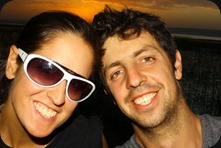 changing the air filters, a very fiddly and messy job. We managed to catch the sunset over the lake, and then sat down at the restaurant for some more fantastic local food and coffee, before heading back to sleep on what were incontestably the most comfortable beds we have slept in since we left.
changing the air filters, a very fiddly and messy job. We managed to catch the sunset over the lake, and then sat down at the restaurant for some more fantastic local food and coffee, before heading back to sleep on what were incontestably the most comfortable beds we have slept in since we left.
Day 31 – Marsabit to Moyale (Via the ROAD THROUGH HELL, DUM DUM DUUUUUUM) (258 km)
29.01.2012
Jules writes:
Today marks the one-month point in our epic journey, and we certainly did it in style (as in “the building was demolished in style” or “the enemy spy was tortured with style”).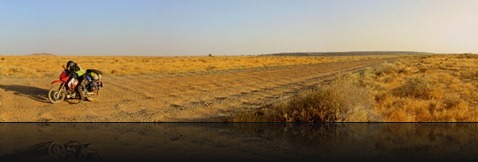
We had a mere 250 km to cover today, but considering our experience from the previous day, we decided to leave really early. Our German friends, Hans and Rolf, decided to join us for the ride, as they were also heading to Moyale. And so, at 4 AM, our alarms started sounding. When Dad emerged bleary-eyed from his room, he commented: “I’ve been awake since 2 AM, like a condemned man waiting for the gallows”. After the previous days riding, he was definitely not looking forward to today. Maybe that is why we ended up leaving at 5:30, rather than the agreed upon 5:00.
We started off in the dark riding out of Marsabit. We had heard a comment the previous day that “Marsabit is a good place to live”. Now that I think about it, I think he may have said “Marsabit is a good place to leave”, but it may have just been the accent…
The road it turns out, is due for an upgrade to tar, and so while work is pending, they have created a detour that runs along next to the main road, which actually is in far better condition. The first hour was actually quite pleasant, as much as riding along HELL ROAD can be pleasant. This may be on a par with having your teeth slowly extracted by having your skull vigorously shaken for several hours.
As the sun started to come up, we turned back onto the main road, just in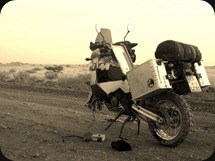 time for Hans to notice that his front tyre was going flat. Not a problem, front tyres are relatively easy to fix. We quickly had the tyre off, located the puncture and had everything back together, just in time for someone to notice that my back tyre was flat. Considering that I had changed a flat tyre just the previous day, no easy feat, this was a bit of a frustration, but with a dawn just beginning to settle across the horizon, we tackled the task with aplomb, and in just over an hour we were back on our way.
time for Hans to notice that his front tyre was going flat. Not a problem, front tyres are relatively easy to fix. We quickly had the tyre off, located the puncture and had everything back together, just in time for someone to notice that my back tyre was flat. Considering that I had changed a flat tyre just the previous day, no easy feat, this was a bit of a frustration, but with a dawn just beginning to settle across the horizon, we tackled the task with aplomb, and in just over an hour we were back on our way.
Now I need to attempt to give some idea about this road, reckoned by some to be the worst road in Africa. It is the major highway between Nairobi and Addis, and runs through various permutations of desert for almost its entire 400 km length. And during the course of the day, it managed to produce pretty much every variation of terrible road that can be imagined: gravel, corrugations too pitted and steep that ant insects attempting to scale these ruts in the road have to establish base camps along the way, so that they do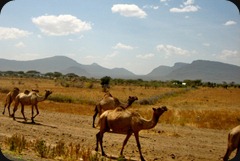 not starve while making the ascent; sudden holes in the road, deep enough to hide a camel in; camels strolling across the road nonchalantly, thick sand that will send the tyres of the unwary sliding off into the bushes. And rocks, sometimes big rocks just sunning themselves in the middle of the road, sometimes small sharp ones embedded in the ground, hungry for a bite of tyre, and the worst of all, small basalt, which provided absolutely no grip, and required either a headlong rush through, hoping that momentum will carry you through, or crawl along at a snails pace. but truly, one has to travel the road to fully understand its horror.
not starve while making the ascent; sudden holes in the road, deep enough to hide a camel in; camels strolling across the road nonchalantly, thick sand that will send the tyres of the unwary sliding off into the bushes. And rocks, sometimes big rocks just sunning themselves in the middle of the road, sometimes small sharp ones embedded in the ground, hungry for a bite of tyre, and the worst of all, small basalt, which provided absolutely no grip, and required either a headlong rush through, hoping that momentum will carry you through, or crawl along at a snails pace. but truly, one has to travel the road to fully understand its horror.
We stopped for another break for breakfast, packed sandwiches and boiled eggs, washed down with some water. As we climbed back on the bikes, Rolf pointed to my bike, and lo and behold, another puncture. Still maintaining a semblance of good humour, we tackled the tyre, yet despite trying to do it in under 30 minutes (we did have quite a bit of practice at this stage) we only managed it in about 75 minutes, due to some problems with reattaching the brakes. At some time during the task, a crow came to inspect us, but unfortunately for the crow, no-one was about to die yet.
We still had no clear idea about what to do regarding the tribal conflict that had been taking place, and so when we finally rolled into Turbi, a tiny little town 150 km from Marsabit, we collapsed into a local shop and soon were downing bottles of water and cold-drinks, while asking the locals for their thoughts on whether we should acquire a police escort for the last 100 km, which we would have had to pay for, as well as having to hire a vehicle for them to drive in. The general feeling seemed to be that things had calmed down, so we decided to brave the last bit of the road without an escort, with the understanding that we would stick together if there was trouble.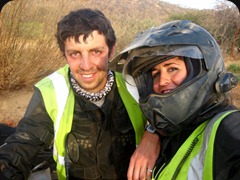
Although we had heard that that the road was slightly better from Turbi onwards, whatever difference there was was negligible, with many sections of the road consisting of heavy sand, one of the hardest road surfaces to drive in. At one point, driving into a town, a red cross vehicle came screaming around the corner, driving in the left hand lane right towards me. I swerved right, as did he, and so I had to high-tail it off the road to avoid being laid out. The irony of being taken out by a Red Cross vehicle was not lost on me.
Driving through this potentially hostile environment definitely puts one on edge. Plastic bags seem to glare at you with sinister intent, and menacing trees try and grab at you with thorny fingers. The sight of people on the road ahead of us would generally cause us to cluster together, although no danger ever materialised.
As we had been riding, I had been struggling with my bags tending to list off to one side. I would stop and readjust them, then continue onwards, only to stop again a few kilometres later to redo the process. Eventually, about 40 km form Moyale, I had a closer look and noticed to my consternation, that two bolts, the ones holding my luggage support onto the bike, had rattled loose somewhere along the road. The team assembled after a few minutes to inspect the situation, and we eventually managed to make a plan with a few bolts that we had, although this would require some attention at our destination. So during the course of our ride, I had managed to lose some very important bolts and acquire two punctures. Not a great tally.
As I drove through a small settlement, a small, sweetly smiling child threw a stone at me. I sighed, and drove on. The same bastard got Shan on the helmet too.
Finally, with the shadows lengthening across the road, we headed for the last few kilometres to the end of the hell road. Along the way we saw tiny antelope that would stare at us from the side of the road, watching our approach with a mixture of trepidation and fascination, and then dashing back to the safety of the bushes as we passed, like elderly spinsters watching from their doors as a streaker runs down the street.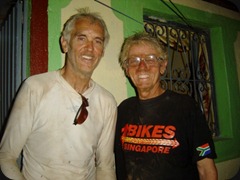
We arrived in the town centre just as dusk was settling in (a mere 13 hours after setting out, same as yesterday), where, true to the tone of the day, Johns bike had a puncture in the rear wheel. At this stage, all we cared about was finding a place to sleep, and after settling in, we washed up (buckets with hot water) and then headed down to the local pub where we washed down a few beers and had some chicken. After trying his chicken Hans commented, “This chicken has won a few races”.
And so we have conquered (or at least survived) the Hell Road to Moyale, and, provided we can find some bolts and can change the tyre in the morning, we leave Kenya behind to head into Ethiopia.
Day 12 Victoria Falls
10.01.2012
Jules writes:
The morning saw Shan and I up bright and early and heading down to the activities office, where we met the others going on the raft, a girl from Poland who was leaving the following day after having spent four months in Vic Falls, and five American girls who were over in South Africa doing research as part of their Fullbright scholarship, seriously smart. After the safety talk, we headed off to the river.
months in Vic Falls, and five American girls who were over in South Africa doing research as part of their Fullbright scholarship, seriously smart. After the safety talk, we headed off to the river.
The river was spectacular, winding through a deep gorge, with sheer cliffs looming over us, sometimes with trees growing straight out of the rocks. The actual raft was a blast. Shan and I surfed down one rapid standing on the side of the boat, I managed to get ahead of the raft, and had to commandeer one of the boat belonging to another tour company in order to avoid being dashed to pieces/drowned. At the end of the trip, we had to hike out of the gorge, and met a friendly, what we thought was one of our porters on the way up who offered to carry some of our stuff up. After climbing what must have been 50 m, he stopped and asked for some cash. Having just rafted 14 km down the river, he expressed what I felt was unwarranted surprise that I didn’t have cash on me. He then commented on how much he liked my shoes. Unfortunately, I liked them more, and was wearing them at the time, so we walked off, leaving him to watch my shoes and I depart up the hill.
When we got to the top, we found out that one of the American girls had had a similar experience, but had been a bit uncertain, and he’d ended up with her shoes. When she got to the top, she decided she liked her shoes more as well, and tried to find him to buy them back from him, but he was nowhere to be found, probably straight off to Paris and Milan to show off his new “rural chic” look.
From the rafting, we headed off to “The Big Tree”, not just a clever name, it’s an enormous baobab, reckoned to be about 1500 years old. As soon as we stopped, a troupe of hawkers sidled out of the bushes, and began offering us the very latest in delicate stone carvings and large elaborate wooden marks. They seemed baffled by the assertion that we would have neither the space, nor any use for their ponderous wares on a 4 month bike trip. When they started remarking how much they liked Shan’s sunglasses, we took that as our cue to move swiftly along to see Victoria Falls.
The Falls defy description. The sheer power of the river as it plunges over the edge is breath-taking. Patterns in the falling waters always seem on the very of forming, but then tantalizingly disappear from view in the rising spray from their base, which obscures the river below, making it seems as if the water is disappearing into so dark and distant cavern in the Earth. We were drenched by what seems to be a constant deluge, but in  the sky above, not a cloud can be seen. Apparently, in the dry season, one can walk along the bottom and see the scattered bones of hippos and elephants who foolishly dared to test their strength against the inexorable pull of the river. Although we tried to take as many photos and videos as we could, the Falls are something that must be personally encountered to be fully appreciated.
the sky above, not a cloud can be seen. Apparently, in the dry season, one can walk along the bottom and see the scattered bones of hippos and elephants who foolishly dared to test their strength against the inexorable pull of the river. Although we tried to take as many photos and videos as we could, the Falls are something that must be personally encountered to be fully appreciated.
We then joined Dad and John for a sunset cruise, which, due to the heavy cloud cover, was more of a “watch-the-clouds-go-from-a-light-grey-to-a-more-darker-shade-of-grey” cruise. However, despite the lack of solar pyrotechnics, we still had a great time, seeing crocs and hippos, and chatting to some fascinating people, including John and Charlie, who had recently done an overland trip from London to Cape Town. They had the first good words I’ve heard about Syria, claiming it as one of  their favourite places, and telling us tales of ruined roman cities and courteous locals. We also chatted to Frank Ncube, one of the tour operators, who has spent 11 years working in the UK, Australia and New Zealand, and used to regularly chat to Ewan McGregor while working on Star Wars. Maybe he can even put us in contact with him!!!
their favourite places, and telling us tales of ruined roman cities and courteous locals. We also chatted to Frank Ncube, one of the tour operators, who has spent 11 years working in the UK, Australia and New Zealand, and used to regularly chat to Ewan McGregor while working on Star Wars. Maybe he can even put us in contact with him!!!
When we came back, we joined them for a great supper, where they continued to regale us with tales of distant lands, and we eventually headed back, with John very generously offering us free lodgings at his backpackers in Dar-es-Salaam, and Charlie promising us the longest, most boring e-mail giving us suggestions on places to stay at and visit in our travels.
So all in all, a perfect day, filled with new sights, adventures, and new friends. Off to Zambia tomorrow.
20 WEEKS TO BLASTOFF
08.08.2011 Mal writes:
Over a month has passed since our last blog entry, and we have seen an increasing number of people subscribing to the blog, for which we are grateful. Please take time to register, and tell your friends to sign up to WORDPRESS.COM as well. It is not about US, but about raising awareness for the hospital. Carol and Shan have produced what we think is a very nice letterhead which is being used as our header page for the blog. The blog is now functional and doesn’t need too much more development, just some real bike riding blogs, instead of these “preparation” entries.
John’s citizenship has at last come through, so, after about forty years inSouth Africa, he is “one of us”! He is now waiting for his passport to come. The rest of us have our passports up to date so that we won’t get caught out with a date that expires while travelling, or with too few pages in the passport.
The pannier bags and racks are under construction, and the bash plates which protect the engines from damage underneath, are also with the engineer who is making up a set for us. We have compiled a comprehensive “Kit List” of items to go into our luggage. That list has been based on the experience of other riders who have tackled long distance bike rides, and we are especially grateful to the blogs detailing their rides up toCairo. They are: “3 Farmers and a Greek”, and “Tea forAfrica”. Both Rufus Dreyer and Charl Wessels have been very kind with their time and expertise. We learn from the masters.
There is still a debate as to whether to take camping equipment, which occupies space and will weigh us down, but offer accommodation anywhere, or, to dispense entirely with camping and look for B and B’s, which will be more costly, but offer some degree of comfort (hopefully) and give us better chances of internet access for keeping up our blog posts. The debate will continue till the decision has to be made.
We want to take our kit list and approach potential sponsors/ advertisers who may catch the vision with us for the trip and assist us with certain items, in that way trying to reduce costs where we can. These are such items as Notebook computers, external hard drive, Kindle reader, helmet mounted video camera and intercom device, Garmin GPS, motorbike spares/ tools, first aid kit, etc.
Finance-wise, we are doing our best to save up for the trip but are sometimes left feeling that we wonder if we are out of our minds! Maybe that was never in doubt.
The following is a list of the countries that we have in mind passing through: South Africa, Zimbabwe, Zambia, Malawi, Tanzania, Kenya, Ethiopia, Northern Sudan, Egypt, Jordan, Syria, Turkey, Iran, Pakistan, India, Nepal, Thailand, Cambodia, Laos, Vietnam, Malaysia, and Singapore. Do a quick count and figure out how many of those countries are beating the tom-tom drums of war and strife! Add to that the countries where fuel is hard to get hold of, and you have an interesting route! But aaahhh, the sweet anticipation of very cheap petrol inIranwill be the flip side.
The date of departure has been set for Friday morning, December 30th. That is 143 days. There is still lots to be done, but we feel we are on track.
Thanks again to everyone for their support and encouragement.

